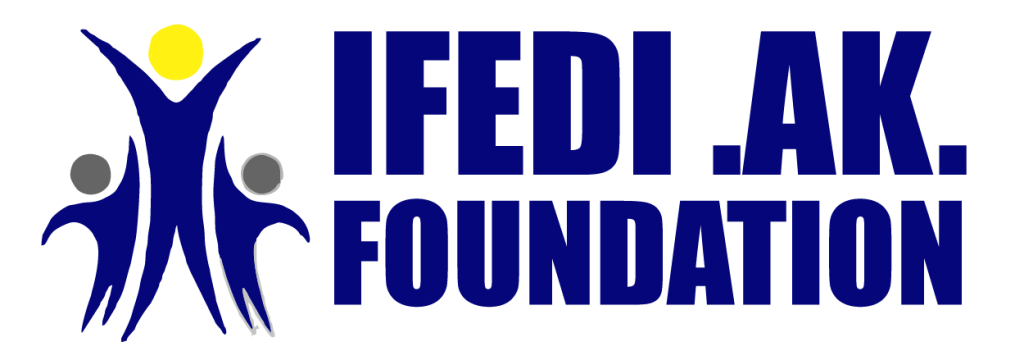Access to clean water and sanitation is a basic human right. Nonetheless, it remains a challenge for millions worldwide, with approximately 2 billion people still lacking access to safely managed drinking water services as of 2020, and an estimated 4.2 billion people lack access to safe sanitation facilities (Sustainable Development Goals Report, 2022).
This crisis severely affects people’s health, well-being, and economic productivity. The lack of safe water and sanitation leads to waterborne diseases, such as cholera, diarrhoea, and typhoid fever, which cause millions of deaths yearly, especially among children under five (WHO, 2022). Additionally, women and girls are disproportionately affected by the water and sanitation crisis as they spend hours each day collecting water, leaving them little time for education, work, or other activities. Moreover, inadequate sanitation facilities expose women and girls to violence, harassment, and sexual assault (UN, 2022). On the other hand, access to clean water is critical for agriculture, industry, and household use.
The water and sanitation crisis has a significant impact on economic development as well. People who lack access to safe water and sanitation facilities often cannot work or attend school due to illness, which limits their productivity and economic potential (Water.org, 2022). Additionally, the cost of treating waterborne diseases significantly strains individuals, families, and healthcare systems. Furthermore, the water and sanitation crisis perpetuate the cycle of poverty. It disproportionately affects vulnerable populations, such as the poor, marginalised, and rural communities, often excluded from basic services and infrastructure(Water.org, 2022).
The global water crisis has reached a critical point, and urgent action is needed to address the challenges faced by communities and nations around the World. This article provides insights on the water and sanitation crisis in Nigeria, with a focus on the recurring issue of flooding, poor water management, inadequate access to water and sanitation facilities, measures to tackle this menace so far, and the strategies to accelerate change in Nigeria’s water crisis.
Each year on March 22nd, World Water Day is observed to raise awareness about the importance of water and the need for sustainable management of water resources. The 2023 World Water Day theme is “Accelerating Change,” which highlights the urgency of taking action to address the global water crisis. World Water Day 2023 is to call for accelerated change and collective action to ensure access to safe and sustainable water and sanitation for all.
The Water and Sanitation Crisis in Nigeria: An Insight
Nigeria is facing a severe water and sanitation crisis affecting millions of people in urban and rural areas. Flooding, poor water management, water scarcity, and a lack of access to sanitation facilities are widespread and have significant public health and economic implications.
The recurring issue of flooding is one of Nigeria’s most pressing water-related challenges. Widespread flooding has affected over 3.2 million people in Nigeria, resulting in over 600 fatalities and displacing over1.4million people. According to the United Nations Office for the Coordination of Humanitarian Affairs (OCHA), the floods have affected 34 of Nigeria’s 36 states, destroying or damaging over 569,000 hectares of farmland and exacerbating the country’s alarming food insecurity. Flooding not only worsens the existing water and sanitation crisis in the country, but it also causes significant damage to infrastructure, property, and crops, resulting in economic losses and long-term negative impacts on livelihoods.
Thegeography and topography of Nigeria contribute significantly to the frequency and severity of flooding in the country. Nigeria is a low-lying area with numerous rivers, streams, and lakes, and its coastal regions are particularly vulnerable to flooding during the rainy season. Furthermore, factors such as poor urban planning, inadequate drainage systems, deforestation, land-use changes, and the construction of dams and reservoirs have exacerbated the adverse effects of flooding in Nigeria.
Strategies for Accelerating Change in Nigeria’s Water Crisis
The role of individuals and communities: Individuals and communities play a crucial role in accelerating change toward a water-secure world. Individuals can take small but impactful actions, such as conserving water, reducing pollution, and promoting sustainable water management practices. Communities can also play a role in improving access to safe water and sanitation facilities through the establishment of community-led initiatives, such as water committees or community-based organisations. Furthermore, individuals and communities can advocate for policy changes that prioritise sustainable water management practices and ensure that vulnerable populations can access safe water and sanitation facilities.
The need for investment in water and sanitation infrastructure: Investment in water and sanitation infrastructure is crucial to accelerating change towards a water-secure world. This investment includes building and upgrading water treatment plants, distribution systems, and sanitation facilities. Investment in water and sanitation infrastructure is also essential for ensuring access to safe water and sanitation facilities for vulnerable populations, such as the poor, marginalised, and rural communities. For instance, the share of budget to the Ministry of water resource over the last ten years has been below 2 percent (see figure 3A), indicating its inadequacy. Furthermore, according to an OECD report 2022, to achieve universal access to safely managed water supply and sanitation for all, it is recommended that countries allocate 1 -2% of their GDP towards the development of water supply and sanitation infrastructure from 2015 to 2030, however, the share of GDP to water supply and sanitation infrastructure in Nigeria has been below 1 percent overtime (see figure 3B). Governments, international organisations, and private sector actors must invest in water and sanitation infrastructure to ensure everyone can access safe and sustainable water and sanitation.
The importance of education and awareness: Education and awareness are critical to accelerating change towards a water-secure world. This includes educating individuals and communities about water conservation, sustainable water management practices, and the health risks associated with the lack of safe water and sanitation facilities. Education and awareness campaigns can also help change behaviours and attitudes towards water and sanitation, leading to more sustainable and equitable use of water resources.
The need for international cooperation and collaboration: International cooperation and collaboration are essential to accelerating change towards a water-secure world. The collaboration between governments, international organisations, civil society, and the private sector to promote sustainable water management practices, build and upgrade water and sanitation infrastructure, and ensure access to safe water and sanitation facilities for all. Furthermore, international cooperation and collaboration can help address the root causes of the water and sanitation crisis, such as climate change and pollution, which require a collective effort to address.



